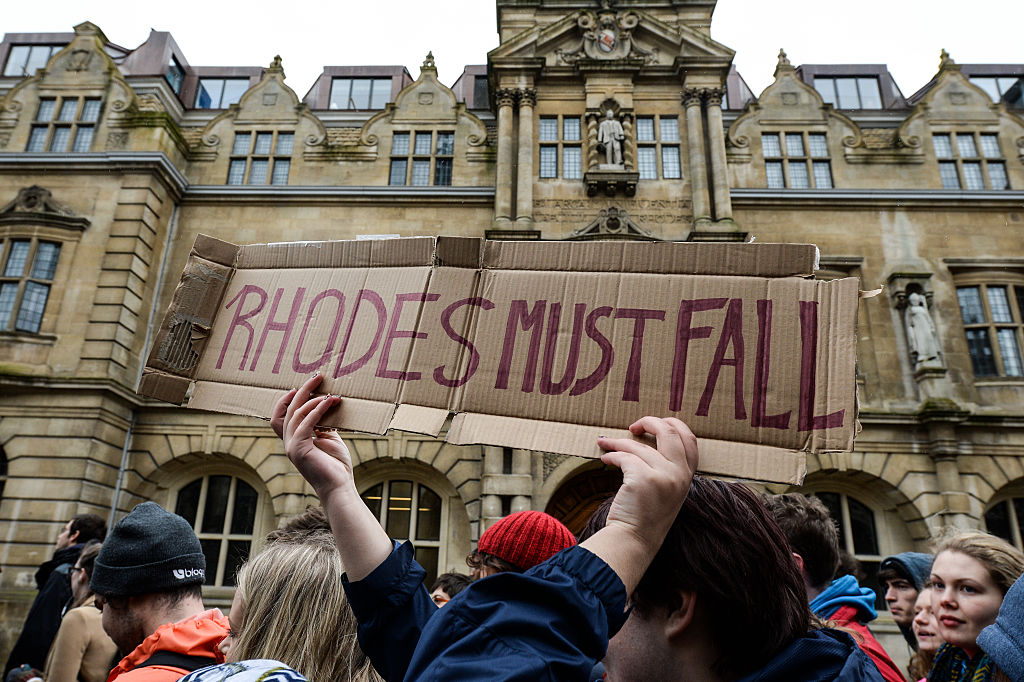Why should we leave memorials to evil men standing? Even for those who oppose the toppling of statues like Edward Colston’s, it’s a hard question to answer. But one reason to stand against the destruction of memorials to those who have come before is because of what it might mean for those who come after us.
While some wealthy people make donations or leave bequests to good causes out of a simple desire to build a better future, others are motivated more by the selfish, vain, and utterly understandable desire to be remembered, or to add a gloss to a life that would otherwise be viewed as without redeeming features. Believing that the future will despise and erase you does not leave a strong motive for donations of this sort.
The concept of buying salvation has a long and chequered history. From the 13th century onwards, the wealthy started engaging in the practice of leaving money for the founding of chantries; chapels or altars where priests would say masses for the soul of the dead benefactor, assisting with the atonement for misdeeds and hastening their time in purgatory. For those without as much money, there was the option of donating your way onto the bede-roll of names read out in church, securing prayers for your afterlife. While these practices channelled funds into churches, they also funded the other duties of the clergymen, frequently including the education of the poor.
A culture which marks its lack of respect for past benefactors may find that it takes some time for that mark to fade
The secular version of this idea still holds weight today. Alfred Nobel is remembered primarily as the generous benefactor of the Nobel Prizes that have done so much to advance the causes of science, literature, and peace. That his establishment of the prizes in his will was inspired by reading a less than glowing obituary written in the mistaken belief that he had died – drawing particular attention to the consequences of his work as an arms dealer – is less well remembered.
Similarly, Cecil Rhodes set about funding scholarships and the expansion of Oriel College, Oxford, in an attempt to secure a legacy that would long outlive him. The scholarships in particular – established in 1902 – were intended to secure an understanding (and therefore peace) between Britain, Germany, and the United States, a laudable aim which fell slightly flat in the subsequent 43 years. Still, in the years since they have paid for the education of – and the development of strong links between – leaders and intellectuals around the world.
Some of those currently damned are considerably less at fault than Rhodes or Nobel. Thomas Guy held part of the British national debt, which he was required to exchange for shares in the South Sea Company. Two years after being founded, the Company was given a monopoly contract for the supply of slaves to South America, a trade which was promptly disrupted by war between England and Spain.
In 1720, a speculative bubble drove the price of the shares to spectacular heights prior to a sharp crash. Guy was smart enough to sell at the peak. When the bubble ended, Guy, who appears to have quietly accumulated further shares in the years prior, re-invested some of his money in the Company. He died in 1724, and the money he left in his will paid for the foundation of Guy’s Hospital in London.
Describing his fortune – built largely on the back of investment in government bonds, and then through riding a financial bubble – as having been earned through the slave trade is tenuous. By the standards of his time, Thomas Guy – a bookseller and philanthropist – was judged worthy of remembrance. Today, his link to slavery through these transactions is enough for his statue to be removed from public view.
While buying the redemption of one’s image may be distasteful (and purchasing memory gauche), it is an important motivation for people who donate or leave legacies. Removing all trace of those who lived lives viewed less than positively by today’s standards creates a problem of credibility; how are we supposed to indicate to donors that we won’t do it to them? The more stringently the filter is applied – the smaller the sin necessary for erasure – then the greater the probability is that some shift in our social order will find our donor on the ‘wrong side of history’. The attempted cancellation of philanthropists in real time – see the treatment of JK Rowling – merely adds to this.
A culture which marks its lack of respect for past benefactors may find that it takes some time for that mark to fade. Even leaving aside the case for maintaining the tangible elements of our history, the costs of tearing down statues to charities, universities, hospitals, schools, and other beneficiaries of donations and legacies may significantly exceed the benefits.







Comments